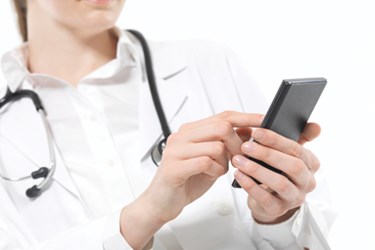Nurses: Medical Errors Could Be Reduced With Connected Devices

By Katie Wike, contributing writer

Nurses recently surveyed by the West Health Institute said they believe medical errors could be reduced by using connected devices.
In a survey of more than 500 nurses, researchers have learned that nurses believe medical errors could be reduced through the use of interoperable devices. These include everything from infusion pumps and ventilators to pulse oximeters, blood pressure cuffs, and electronic health records.
“Each year, it is estimated that more than 400,000 Americans die from preventable medical errors. This not only takes an enormous emotional toll on families and friends, but also places a heavy economic burden on the nation – an estimated trillion dollars or higher,” explains the Gary and Mary West Health Institute, which conducted the survey.
According to an announcement from the institute, half of surveyed nurses said they witnessed a medical error resulting from a lack of coordination among medical devices in a hospital setting. “I have seen many instances where numbers were incorrectly transcribed or put in reverse or put in the wrong column when typed manually, which can cause errors,” said one nurse who was surveyed.
Another respondent said transcribing data “takes way too much time for the nurses to adequately care for the patient,” and others agreed. Sixty-nine percent said transcribing data manually takes time away from patients.
Fierce Health IT reports other key findings of the survey include:
- 60 percent said proper communication of devices would help to eliminate issues
- 46 percent said an error is likely to occur when data is manually transcribed between devices
- 74 percent said it is “very” or “somewhat” burdensome to coordinate medical device data
- 93 percent said devices should be interoperable
“Nurses are the front line of patient care and have an unrivaled ability to identify and address problems at the intersection of patients and technology,” said Dr. Joseph Smith, West Health Institute’s chief medical and science officer. “The survey helps show how much of a nurse’s time could be better spent in direct care of patients and families, and how errors could be potentially avoided if medical devices, which have been so successful at improving patient care, were able to take the next step and seamlessly share critical information around the patient’s bedside.”
“It’s time that we free our healthcare workers to do what they do best and what they are most needed for, which is caring for patients,” Dr. Smith said. “Let’s not ask busy clinicians to do those things that technology can automate easily and effectively. Medical device interoperability can save lives, time and money, and at the same time allow nurses to focus on caring for patients.”
